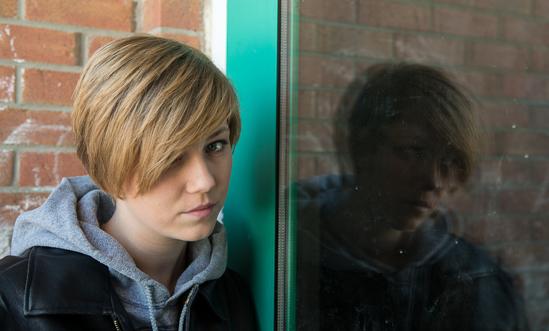By Mia L. McIver, President UC-AFT
In a recent survey of UC-AFT faculty, members highlighted mental health as an issue that deserves our union’s attention and energy. UC students experiencing psychological challenges often seek support from lecturers and other contract faculty, who are sometimes the only faculty with whom they can develop a one-to-one relationship.
This isn’t surprising, since lecturers are hired specifically for our excellent teaching abilities. High-quality education at any level involves engaging with students as unique individuals who deserve our focused mentorship. Lecturers take great pride in lifting students up. When considered in the broader context of available resources and labor issues, however, the dynamics at play are more complex.
It’s a double bind: either take on unpaid care responsibilities for which you’re not trained and about which you receive no guidance, or risk losing your job because a student resents your setting reasonable boundaries.
A September 2018 study from the World Health Organization finds that 35 percent of university students worldwide suffer from chronic mental illness, especially depression and anxiety. Within the United States, another recent study reports that diagnoses and treatments for these and other conditions among college students have been rising since 2009, as has students’ use of university mental health services. This translates into increased pressure on faculty to respond to and support students in crisis.
UC-AFT faculty experience these trends on a regular basis as our students visit office hours to request disability accommodations, sidle up shyly after class to confess their difficulties, or pour their hearts into emails asking for help. Navigating a large and bureaucratic institution like a UC campus can be challenging for anyone; it’s even more so when you’re a first generation student trying to understand the unspoken rules of the place.
Because lecturers are much more likely than tenure-track faculty to be women, students tend to perceive us as more open, approachable, and nurturing. The UC, like most universities, is structured to shift the bulk of emotional labor away from tenure-track faculty and toward contract faculty. While lecturers are experts in our academic fields and highly accomplished in the art, science, and craft of pedagogy, we’re not trained therapists or counselors.
Every term, we connect students with mental health resources, but counseling and psychological services offices on campus are chronically underfunded and understaffed. Newly-created mental wellness programs are being funded not by the state, but by charging students additional fees, which some students understandably object to. Yet Gov. Brown vetoed Senate Bill 968 (Pan, D-Sacramento) earlier this fall, which would have set minimum counselor staffing levels and required community colleges, CSUs, and UC campuses to survey students about their mental health needs.
In all this, the mental health needs of contract faculty are being left out. UCLA, for example, counts understanding, preventing, and treating depression as one of its ambitious Grand Challenges while ignoring that poor working conditions for lecturers contribute mightily to depression. Low salaries mean constant financial stress. Contingency and precarity generate chronic and debilitating anxiety. Losing a position that you thought would be renewed can be particularly devastating; the resulting depression landed one of our colleagues in the hospital recently.
One big fear among contract faculty is the risk of failing to be unconditionally open to student requests. Will students who are suffering harm themselves or others? We’re usually not in a position to make a sound assessment, but when 12.1 percent of college students report considering suicide and there have been two shootings by UC students in recent years, the question is unavoidable. Will setting sensible limits on your time and availability lead to poor student evaluations of your teaching, which are often the only factor considered in rehiring decisions? It’s a double bind: either take on unpaid care responsibilities for which you’re not trained and about which you receive no guidance, or risk losing your job because a student resents your setting reasonable boundaries.
Paradoxically, students are seeking more and more psychological support from the contract faculty whose working conditions profoundly restrict our ability to provide it. We can only be attentive and responsive to student needs when our institutions afford us similar support. As with so many other issues, student and faculty mental health are inextricably linked and must be addressed together in order to make meaningful improvements in mental health on UC campuses.
Mia McIver is a lecturer of writing at UCLA and the president of University Council-AFT.



